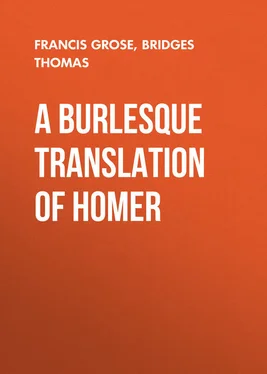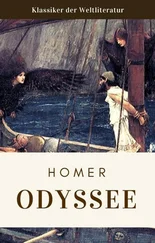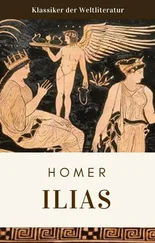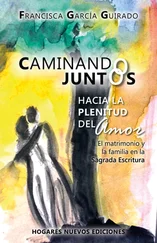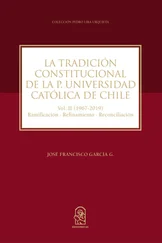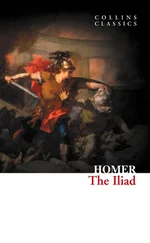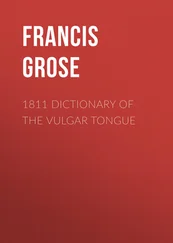Francis Grose - A Burlesque Translation of Homer
Здесь есть возможность читать онлайн «Francis Grose - A Burlesque Translation of Homer» — ознакомительный отрывок электронной книги совершенно бесплатно, а после прочтения отрывка купить полную версию. В некоторых случаях можно слушать аудио, скачать через торрент в формате fb2 и присутствует краткое содержание. Жанр: foreign_antique, foreign_prose, на английском языке. Описание произведения, (предисловие) а так же отзывы посетителей доступны на портале библиотеки ЛибКат.
- Название:A Burlesque Translation of Homer
- Автор:
- Жанр:
- Год:неизвестен
- ISBN:нет данных
- Рейтинг книги:5 / 5. Голосов: 1
-
Избранное:Добавить в избранное
- Отзывы:
-
Ваша оценка:
- 100
- 1
- 2
- 3
- 4
- 5
A Burlesque Translation of Homer: краткое содержание, описание и аннотация
Предлагаем к чтению аннотацию, описание, краткое содержание или предисловие (зависит от того, что написал сам автор книги «A Burlesque Translation of Homer»). Если вы не нашли необходимую информацию о книге — напишите в комментариях, мы постараемся отыскать её.
A Burlesque Translation of Homer — читать онлайн ознакомительный отрывок
Ниже представлен текст книги, разбитый по страницам. Система сохранения места последней прочитанной страницы, позволяет с удобством читать онлайн бесплатно книгу «A Burlesque Translation of Homer», без необходимости каждый раз заново искать на чём Вы остановились. Поставьте закладку, и сможете в любой момент перейти на страницу, на которой закончили чтение.
Интервал:
Закладка:
active 1759-1775 Thomas Bridges
A Burlesque Translation of Homer
THE FIRST BOOK OF HOMER'S ILIAD
ARGUMENT
Atrides, as the story goes,
Took parson Chrysis by the nose.
Apollo, as the gods all do,
Of Christian, Pagan, Turk, or Jew,
On that occasion did not fail
To back his parson tooth and nail.
This caus'd a dev'lish quarrel 'tween
Pelides and the king of men;
Which ended to Achilles' cost,
Because a buxom wench he lost.
On which great Jove and's wife fell out,
And made a damn'd confounded rout:
And, had not honest Vulcan seen 'em
Ready for blows, and stepp'd between 'em;
'Tis two to one but their dispute
Had ended in a scratching-bout.
Juno at last was over-aw'd,
Or Jove had been well clapper-claw'd.
SOMETHING BY WAY OF PREFACE
Good people, would you know the reason
I write at this unlucky season,
When all the nation is so poor
That few can keep above one whore,
Except the lawyers – (whose large fees
Maintain as many as they please) —
And Pope, with taste and judgement great,
Has deign'd this author to translate —
The reason's this: – He may not please
The jocund tribe so well as these;
For all capacities can't climb
To comprehend the true sublime.
Another reason I can tell,
Though silence might do full as well;
But being charg'd – discharge I must,
For bladder, if too full, will burst.
The writers of the merry class,
E'er since the time of Hudibras,
In this strange blunder all agree,
To murder short-legg'd poetry.
Words, though design'd to make ye smile,
Why mayn't they run as smooth as oil?
No poetaster can convince
A man of any kind of sense,
That verse can be the greater treasure,
Because it wants both weight and measure
Or can persuade, that false rough metre,
Than true and smooth, by far is sweeter.
This is the wherefore; and the why,
Have patience, you'll see by-and-by.
HOMER'S ILIAD
Come, Mrs. Muse, but, if a maid,
Then come Miss Muse, and lend me aid!
Ten thousand jingling verses bring,
That I Achilles' wrath may sing,
That I may chant in curious fashion
This doughty hero's boiling passion,
Which plagu'd the Greeks; and gave 'em double
A Christian's share of toil and trouble,
And, in a manner quite uncivil,
Sent many a Broughton to the devil;
Leaving their carcasses on rows,
Food for great dogs and carrion crows.
To this sad pass the bully's freaks
Had brought his countryfolks the Greeks!
But who the devil durst say no,
Since surly Jove would have it so?
Come tell us then, dear Miss, from whence
The quarrel rose: who gave th' offence?
Latona's son, with fiery locks,
Amongst them sent both plague and pox.
And prov'd most damnably obdurate,
Because the king had vex'd his curate;
For which offence the god annoy'd 'em,
And by whole waggon-loads destroy'd 'em.
The case was this: These sons of thunder
Took a plump wench amongst their plunder.
A red-nos'd priest came hobbling after,
With presents to redeem his daughter;
Like a poor supplicant did stand,
With an old garland in his hand
Filch'd from a May-pole, and to boot
A constable's short staff lugg'd out.
These things, he told the chief that kept her,
Were his old master's crown and sceptre;
Then to the captains made a speech,
And to the brothers joint, and each:
Ye Grecian constables so stout,
May you all live to see Troy out;
And when you've pull'd it to the ground,
May you get home both safe and sound!
Was Jove but half the friend that I am,
You quickly should demolish Priam;
But, since the town his godship spares,
I'll help you all I can with pray'rs.
For my part, if you'll but restore
My daughter, I'll desire no more.
You'll hardly guess the many shifts
I made to raise you all these gifts.
If presents can't for favour plead,
Then let your pity take the lead.
Should you refuse, Apollo swears,
He'll come himself, and lug your ears.
The Grecians by their shouts declare
Th' old gentleman spoke very fair;
They swore respect to him was due,
And he should have his daughter too:
For he had brought, to piece the quarrel,
Of Yarmouth herrings half a barrel.
No wonder then their mouths should water
More for his herrings than his daughter.
But Agamemnon, who with care
Had well examin'd all her ware,
And guess'd that neither Troy nor Greece
Could furnish such another piece,
Roars out: You make a cursed jargon!
But take me with ye ere you bargain:
My turn's to speak; and as for you, Sir,
This journey you may chance to rue, Sir:
Nor shall your cap and gilded stick
Preserve your buttocks from a kick,
Unless you show your heels, and so
Escape the rage of my great toe.
What priest besides thyself e'er grumbled
To have his daughter tightly tumbled?
Then don't provoke me by your stay,
But get you gone, Sir, whilst you may.
I love the girl, and sha'nt part with her
Till age has made her hide whit-leather.
I'll keep her till I can no more,
And then I will not turn her o'er,
But with my goods at Argos land her,
And to my own old mansion hand her,
Where she shall card, and spin, and make
The bed which she has help'd to shake.
From all such blubb'ring rogues, depend on't,
I'll hold her safe, so mark the end on't.
Then cease thy canting sobs and groans,
And scamper ere I break thy bones.
Away then sneak'd the harmless wizard,
Grumbling confoundedly i' th' gizzard,
And, as in doleful dumps he pass'd,
Look'd sharp for fear of being thrash'd.
But out of harm's way when he got,
To Phœbus he set up his throat:
Smintheus, Latona's son and heir,
Cilla's chief justice, hear my pray'r!
Thou link-boy of the world, that dost
In Chrysa's village rule the roast,
And know'st the measure, inter nos ,
Of ev'ry wench in Tenedos,
Rat-catcher general of heaven,
Remember how much flesh I've given
To stay your stomach; beef and mutton
I never fail'd your shrine to put on;
And, as I knew you lik'd them dearly,
I hung a dozen garlands yearly
About your church, nor charg'd the warden
Or overseers a single farthing;
But paid the charge and swept the gallery
Out of my own poor lousy salary.
This I have done, I'll make't appear,
For more than five-and-fifty year.
In recompense I now insist
The Grecians feel thy toe and fist;
For sure thou canst not grudge the least
To vindicate so good a priest.
Thus Chrysis pray'd: in dreadful ire,
The carrot-pated god took fire;
But ere he stirr'd he bent his bow,
That he might have the less to do,
Resolv'd before he did begin
To souse 'em whilst his hand was in.
Fierce as he mov'd the Greeks to find,
He made a rumbling noise behind;
His guts with grumbling surely never
Could roar so loud – it was his quiver,
Which, as he trotted, with a thwack
Rattled against his raw-bone back.
In darkness he his body shrouds,
By making up a cloak of clouds.
But, when he came within their view,
Twang went his trusty bow of yew:
He first began with dogs and mules,
And next demolish'd knaves and fools.
Nine nights he never went to sleep,
And knock'd 'em down like rotten sheep;
And would have sous'd 'em all, but Juno,
A scolding b – h as any you know,
Came and explain'd the matter fully
To Thetis' son, the Grecian bully,
Who ran full speed to summon all
The common council to the hall.
When seated, with a solemn look
Achilles rose, and thus he spoke:
Интервал:
Закладка:
Похожие книги на «A Burlesque Translation of Homer»
Представляем Вашему вниманию похожие книги на «A Burlesque Translation of Homer» списком для выбора. Мы отобрали схожую по названию и смыслу литературу в надежде предоставить читателям больше вариантов отыскать новые, интересные, ещё непрочитанные произведения.
Обсуждение, отзывы о книге «A Burlesque Translation of Homer» и просто собственные мнения читателей. Оставьте ваши комментарии, напишите, что Вы думаете о произведении, его смысле или главных героях. Укажите что конкретно понравилось, а что нет, и почему Вы так считаете.
